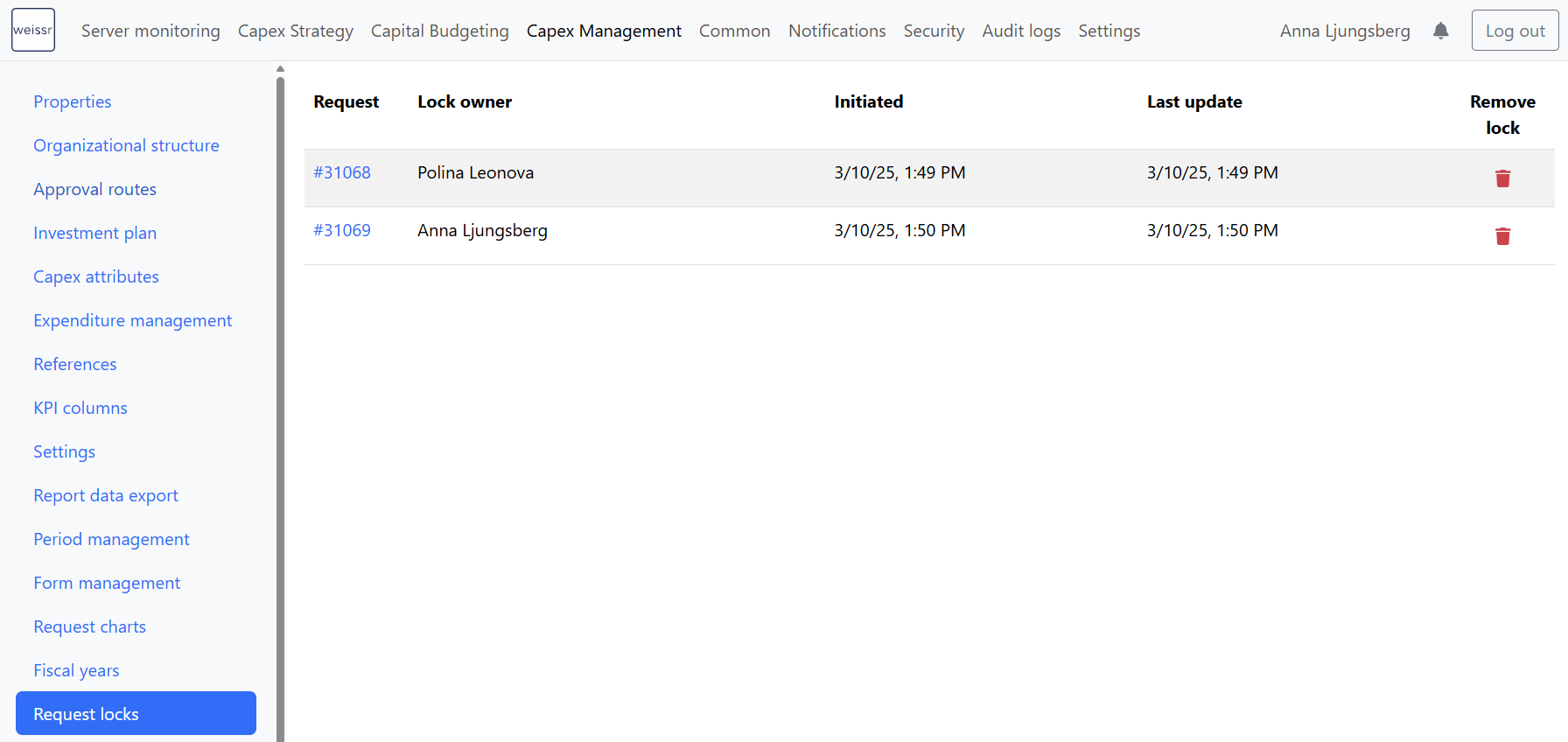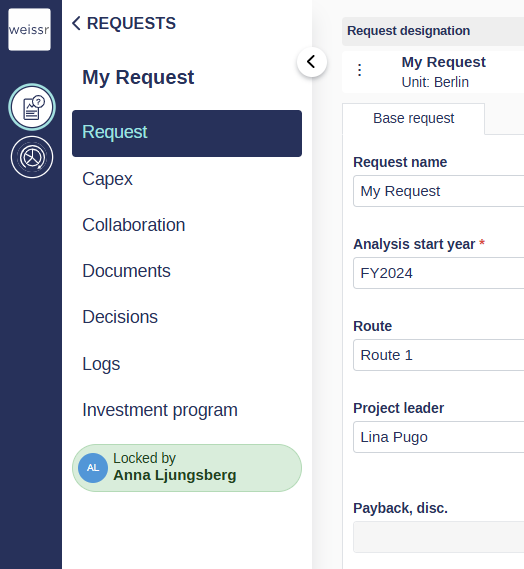Request Locks
The Request locks page in Weissr Capex Administration allows administrators to monitor and manage locked requests. When a user is actively editing a request, a lock is placed to prevent simultaneous edits by others. This page provides an overview of all active locks and the ability to remove them if necessary.
What you’ll see on the request locks page
Administrators can view a list of locked requests, which includes the following details:
Request ID – The unique identifier of the locked request.
Lock Owner – The user who currently holds the lock.
Lock Initiated – The timestamp indicating when the lock was first created.
Last Updated – The last recorded activity on the locked request.
Remove Lock – An option to manually release a lock if needed.
How request locks work
Request locks maintain data integrity by preventing multiple users from editing the same request simultaneously. Each lock is assigned at the request level and is automatically managed by the system based on user activity and predefined rules.
🔹 Automatic Lock Expiry – All request locks are removed automatically at midnight (server time) to ensure no stale locks persist.
🔹 Session-Based Lock Removal – If a user’s session becomes inactive, their lock is removed after a predefined period.
🔹 Server Restarts – Any existing locks are cleared when the server restarts.
🔹 Unexpected Disconnections – If a user forcefully disconnects (e.g., browser crashes, network failure, or unplugging the device), the lock is removed after the predefined period.
🔹 Tab Closure – If a user closes the browser tab while editing a request, their lock is immediately released.
Managing request locks
While locks are automatically managed, administrators can manually remove a lock if necessary:
Navigate to Request Locks in the Capex Management Admin panel.
Locate the locked request in the list.
Click Remove Lock to release the request for editing.
⚠️ Warning: Manually removing a lock while a user is still editing may lead to data conflicts. Only remove locks when necessary, such as in cases of abandoned sessions.

